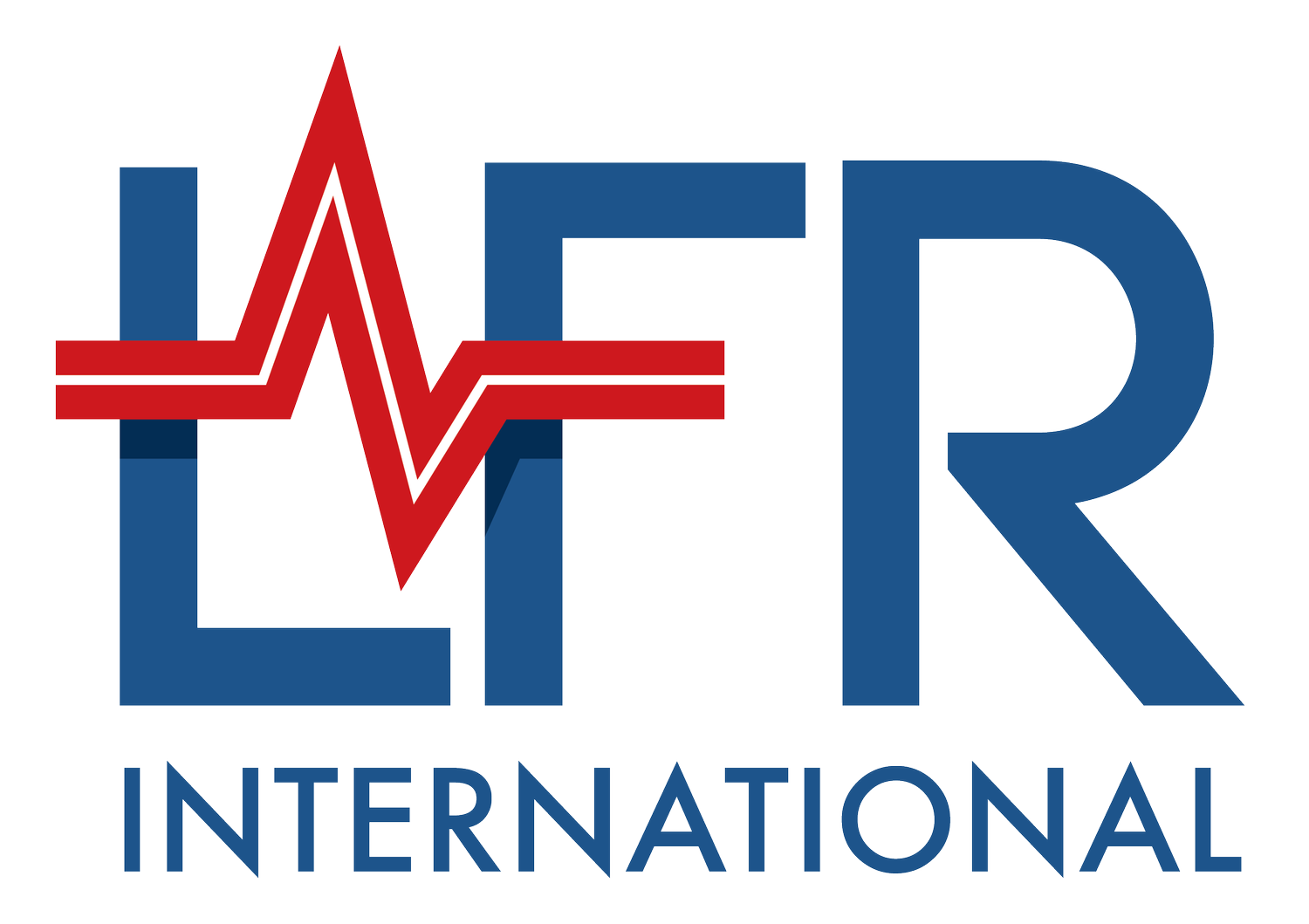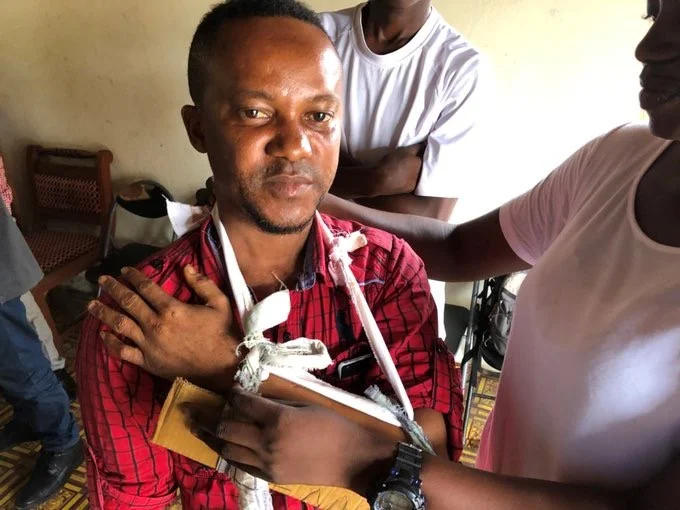
Sierra Leone
Number of First Responders: 4,829
Background
In 2018, LFR partnered with the Secretary General of the Sierra Leone Red Cross Society to launch a lay first responder (LFR) program, serving 606,000 people in Bombali District to train 1,000 LFRs, where formal emergency medical services have previously been non-existent. Once on the ground in Sierra Leone, LFR partnered with the Agency for Rural Community Transformation, the Holy Spirit Hospital, and the University of Makeni. On June 27th, 2019 the First Responder Coalition of Sierra Leone, co-founded by LFR International was signed into effect. The Coalition Constitution establishes the framework for the expansion of EMS throughout Sierra Leone.
Official Flag of the First Responder Coalition of Sierra Leone
Since the programs inception, LFR has trained 4,829 responders and 50 advanced first responder trainers in Bombali District, which constitutes over 50% of all LFRs trained by our organization. All trained responders are equipped with full first aid kits and 10 advanced responders have been equipped with smartphones making use of the TrekMedics Beacon emergency dispatch application, demonstrating on-scene response times averaging 5 minutes and 39 seconds in 150 measured simulation events.
In 2023, an additional 350 first responders were trained as a part of the Deploying Emergency Bystander Internet Training (DEBIT) trail, investigating the efficacy of in-person vs. online training for future program scaling. Currently, Mr. Alfred Harun Thullah, LFR International’s Direct of Africa Operations, ensures continued project success on a day to day basis.
Future Work
LFR first responders practicing splinting techniques in Makeni, Sierra Leone.
In 2024, LFR International was awarded the USAID Development Innovation Ventures Grant to expand and continue the DEBIT Trial in Sierra Leone. Over the course of 36 months, LFR International will use this Stage 1 Grant valued at $200,000 to focus on expanding EMS in the Tonokilli District bordering the Bombali District. This project is organized into 8 milestones. Our key stakeholders in this are the Tonokilli Branch of Sierra Leone Ministry of Health and Sanitation, Tonkolili District Police Department, and USAID Development Innovation Ventures Fund.
Additionally, the First Responder Coalition of Sierra Leone continues to develop more advanced first responder training programs in Bombali District and expand lay first responder training nationally. LFR International aims to:
Train 450 of our 4,829 first responders in advanced medical and obstetrics response.
Train and equip an additional 800 first responders by making use of a massive open online course in a USAID-supported non-inferiority trial.
Utilize mobile phones to create affordable and accessible dispatch networks via an emergency medical dispatch application.
REQUEST FOR APPLICATIONS: LFR is actively seeking application developers to help develop a mobile application for first responder training, evaluation, and dispatch. Read more here.
Media
LFR International programs have been covered by the media all over the country. Read select publications below.
“LFR International brings its innovative lay first responder training program to Makeni”
“Sierra Leone’s road accident First Responder Coalition to save thousands of lives”
“LFR International trains responders and creates the ‘First Responder Coalition of Sierra Leone’”
Local Partners
Peer Reviewed Publications
Injury “Evaluation of a lay first responder program in Sierra Leone as a scalable model for prehospital trauma care.” Eisner ZJ, Delaney PG, Thullah AH, Yu AJ, Timbo SB, Koroma S, Sandy K, Sesay AD, Turay P, Scott JW, Raghavendran K. [Publication Link]
World Journal of Surgery “Evaluating a Novel Prehospital Emergency Trauma Care Assessment Tool (PETCAT) for Low-and Middle-Income Countries in Sierra Leone.” Delaney PG, Eisner ZJ, Thullah AH, Muller BD, Sandy K, Boonstra PS, Scott JW, Raghavendran K. [Publication Link]
Injury “Leveraging transportation providers to deploy lay first responder (LFR) programs in three sub-Saharan African countries without formal emergency medical services: Evaluating longitudinal impact and cost-effectiveness.” Delaney PG, Eisner ZJ, Pine H, Klapow M, Thullah AH, Bamuleke R, Nuur IM, Raghavendran K. [Publication Link]


